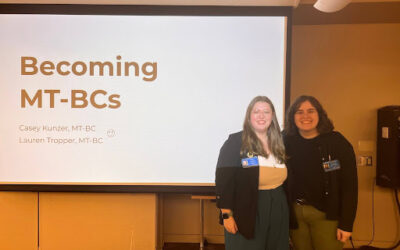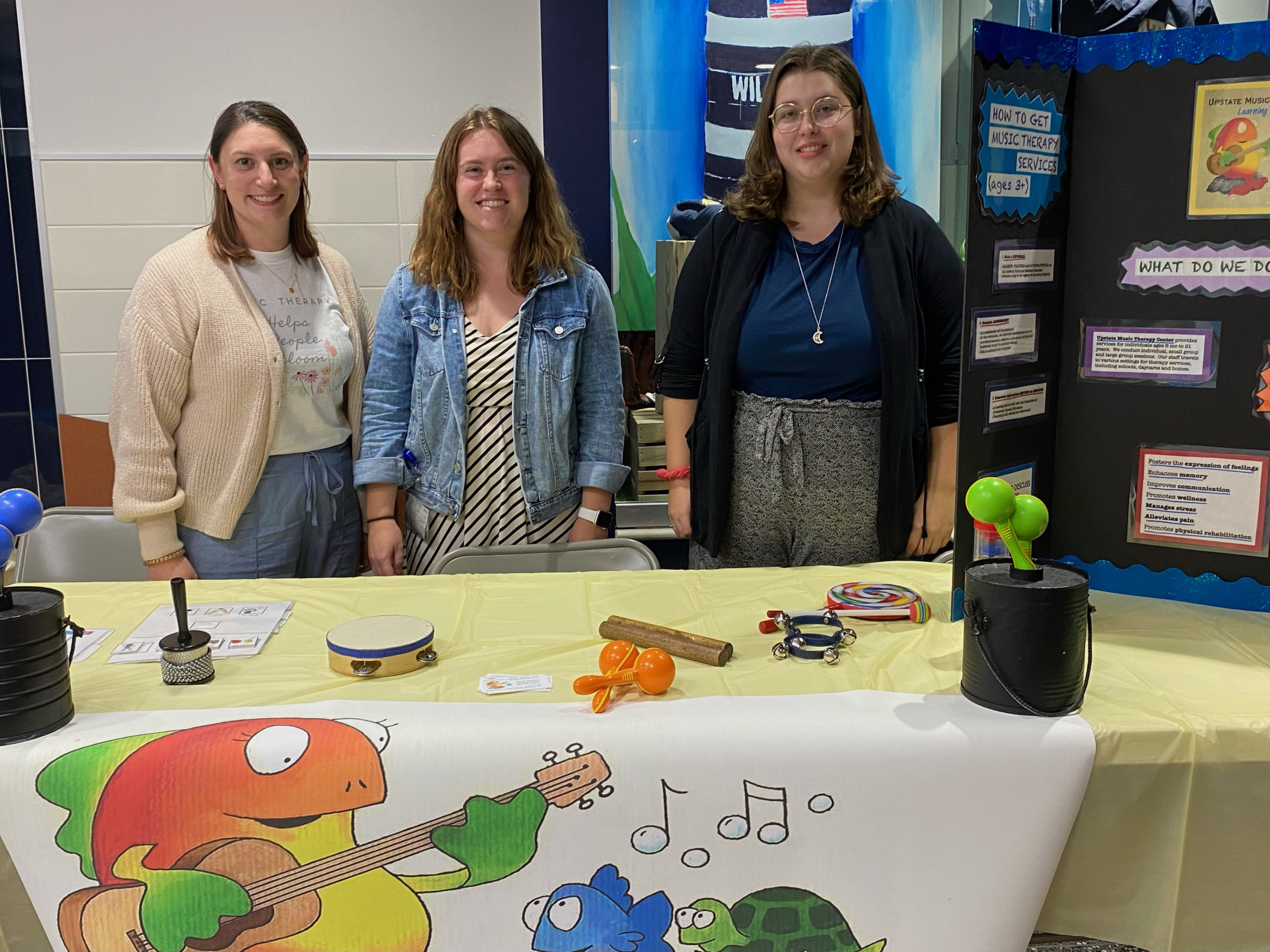Blog written by Katie Pistilli, MT-BC
Chronic pain impacts an individual’s entire life. Not only are there physical symptoms to cope with, but there is the emotional struggle of accepting that the pain is indefinite. While chronic pain is a tragedy for anyone going through it, children experience a special set of challenges. Kids with pain syndromes might have fewer social opportunities to make friends and develop hobbies, adding another layer of complexity and mental health concerns. Kids cope with the same emotional turmoil as adults, if not more, but have a more difficult time expressing it.
Research shows that it is essential to approach chronic pain in children from multiple angles. Not only should the child work with medical doctors to manage their pain and symptoms, but they should also receive mental health support to ensure depression and anxiety are addressed. There is extensive research on how music therapy can assist children in coping with both the physical and emotional symptoms of chronic pain.
Music Therapy Interventions
Music therapy interventions are activities that are meant to address specific goals in a child. For chronic pain, a music therapy intervention may aim to help them relax and distract their mind from the pain. These activities may also prompt conversations to help children accept their pain and diminish feelings of sadness or anger. No matter what the goal may be, a music therapist will always use evidence-based practice or techniques supported by research in their activities.
Music-Assisted Relaxation
If a therapist uses Music-Assisted Relaxation, they hope to help the child relax their body and calm the sensory system. When a child is constantly in pain, their nervous system is on high-alert. This may contribute to anxiety and greater sensitivity to pain. It is important to help children acquire relaxation-based skills so they can independently learn to relax and diminish some of their pain.
Music-Assisted Relaxation can look like:
- Playing live music on guitar or piano and reading a script.
- Mindfulness-based scripts are often used. The child may be encouraged to write a script that encompasses what brings them peace, positive memories, or favorite things (smells, foods, places)
- The therapist may facilitate breathing exercises to music.
Active Music Engagement
Like music-assisted relaxation, Active Music Engagement is also a great way to separate the child’s focus away from their pain and calm their body. These types of interventions are slightly more active on the child’s part and address the thoughts and feelings that they may be experiencing. The goal with Active Music Engagement is to help the child process through thoughts, experiences, and anxieties about the future.
Here is an example of an Active Music Engagement intervention:
- Writing a chant about pain experiences and positive outlook on the future.
- Participating in that chant with the therapist.
- Play along with instruments such as the drums or a xylophone.
Live Patient-Selected Music
Using Live Patient-Selected Music is one way that therapists will help children sort through complex thoughts and emotions related to chronic pain. By using music that the child chooses, the therapist can get a sense of what they may be feeling but can’t express through words.
Using music of the child’s choice, the therapist may:
- Encourage the child to highlight words or lines that stand out to them.
- Prompt the child to keep the beat of the song with them using instruments.
- Pose questions that facilitate discussion about pain and emotions.
Music therapy interventions address chronic pain symptoms in children from both a physical and mental health lens. The interventions above are proven to help calm the child’s body while also addressing the difficult emotions they experience. Research shows that children with chronic pain benefit from a multi-disciplinary approach to their treatment, and music therapy does just that!
Is there a young person in your life who experiences chronic pain? If you think music therapy may benefit them, please don’t hesitate to reach out! Our team of qualified therapists are ready to help.
Becoming MT-BCs: Presented by Casey Kunzer, MT-BC
This blog was written by Casey Kunzer, MT-BC On March 1st myself and my colleague Lauren had the opportunity to attend and present at SUNY Fredonia’s Mini Music Therapy Conference. Our presentation, “Becoming MT-BCs,” aimed to educate and empower student music...
World Music Therapy Week 2024
This blog was written by Robin Neary and Amy Thomas. Happy World Music Therapy week! It brings us joy to know that all around the world music therapists are coming together to celebrate and educate our communities on our profession. This year, Upstate Music Therapy...
Current Events: Marcus Whitman Community Partnership Event
This blog post was written by Robin Neary, MT-BC This month, Upstate Music Therapy Center employees Robin Neary, MT-BC, Jamie Swieringa, MT-BC, and Casey Kunzer, MT had the pleasure of attending Marcus Whitman School District’s Community Partnership Event. Families,...




